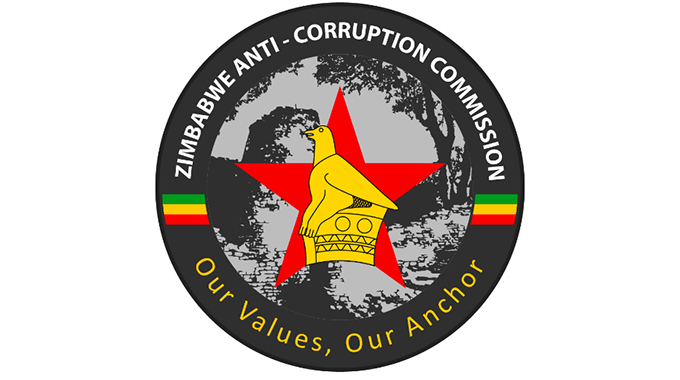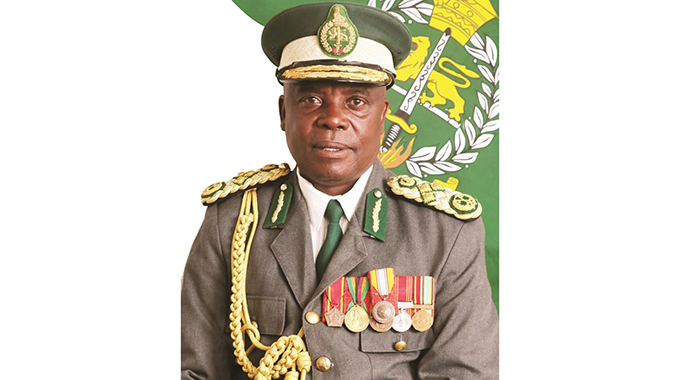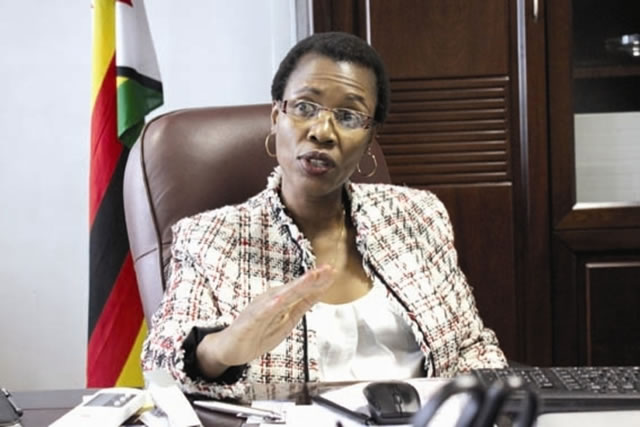Editorial Comment: Zacc must redouble drive against graft

Everyone knows corruption, corruption-related activity and other fiddles involving money laundering and even tax evasion were bad, but the estimate by the Zimbabwe Anti-Corruption Commission that US$7 billion was taken out of Zimbabwe from all this activity shows that it was worse than we ever thought.
This money would have been externalised in many ways. Some went out fairly directly, as packs of US dollar notes in briefcases or gold ingots, carefully wrapped so they did not clink, in hand baggage.
Other sums would have been externalised in complex corrupt business dealings involving fake invoices or fake prices on real invoices.
Some could involve export earnings being under-reported, with authorities being told the price had crashed when the export was sold.
There are many ways to get money out and no doubt the corrupt, both those in the public sector and those in the private sector, plus some who operated in both, between them used most of them.
Now ZACC, as part of its remit, is keen to get this money back. This is important. For a start criminal law processes can be very difficult and lengthy, and when it comes down to tracking down someone who wisely decided on a long holiday outside Zimbabwe sometimes almost impossible.
And even when an address is known, commercial crime or tax evasion in another country is often not the sort of offence that is covered by extradition rules or even by deportation procedures.
Even when we can arrest, try and convict someone of corruption-related activity that conviction does not automatically get the money back. The convicted person’s family might still be enjoying it, perhaps far away in another land.
But legal action to reclaim assets and the proceeds of crime, generally a civil process rather than a criminal process, is frequently easier, bath at home and abroad, since civil law demands proof on the basis of probability, rather than proof beyond reasonable doubt.
Civil processes also do not involve difficult decisions over extradition when the corrupt person is sheltering in some foreign country where they have acquired some rights of residence or even citizenship.
In any case, stripping a corrupt person of the fruits of corruption, is almost as good a deterrent as jailing them. If corruption cannot pay then fewer people will indulge. But if it does pay then there will be people who will risk a few years in jail if they are certain they can join their money when they come out.
So ZACC needs to move on both fronts, criminal and civil.
Tracking down the money and assets bought with that money will be difficult. Some of those who smuggled out cash or gold bars, for example, might well have had corrupt help to avoid airport checks, as has already been indicated in some criminal cases before the courts, or even have been the holder of a diplomatic passport, which besides making travel a lot easier also gives a large degree on immunity over luggage.
This smuggling must have involved a lot more than the trickle that has been intercepted. We know that a significant fraction of our gold production is “missing”.
We must have a fairly good idea of how much of the banknotes imported into Zimbabwe are not around any more. We know how many rhino and elephant were poached, and how many horns and tusks were never recovered.
Now that the Reserve Bank of Zimbabwe is able to concentrate most of its resources on investigating what happens to foreign currency when it is bought legally, we are getting an idea of how much goes “missing” behind a wall of dubious paperwork, and we can backtrack into previous deals.
Getting this money back is going to be difficult. Already there are a number of civil actions in the Zimbabwean courts, often running in parallel with criminal cases, to claw back the proceeds of corruption, with the difference in proof requirements already seeing people avoid a conviction but being stripped of houses, cars and companies.
But we have also seen high-quality lawyers finding gaps in the actions brought by the authorities and this is something that obviously needs to be tightened up.
While the law allows and encourages the civil actions, people have legal rights and courts, quite correctly, demand proper processes. So actions have to be backed by quality evidence and the processes have to recognise those rights.
When we come to getting money back from other jurisdictions, the complications explode. In many cases we might know where the money is, such as if it was spent on fancy properties or the like, but to establish a chain of evidence from a Zimbabwean bribe to a house somewhere else will be hard.
Even countries will investigative resources far greater than Zimbabwe possesses have found it exceptionally difficult to track down taxes that were never paid or the proceeds from organised crime or other undesirable activity.
Despite all the rules introduced over recent years and decades to stop international money laundering and close down tax havens, there are still countries whose banking laws allow a great deal of secrecy.
So ZACC is approaching global watchdogs and agencies for assistance. Considering the static Zimbabwe experienced when corruption was running wild here before the Second Republic, we hope these agencies and the authorities in other countries will assist.
But even with the best efforts of everyone, some money at least will remain “missing” and even when we can establish links we will probably have to engage some high-end legal talent to help claw the criminal proceeds back. Upgrading and moving forward faster on criminal charges is thus also essential, especially when the person is physically in Zimbabwe. Our courts already have a policy of offering large discounts on jail terms if the proceeds of crime are returned, mitigating circumstances in arrears as it were.
One approach that could be worth pursuing is the American concept of plea bargaining, whereby a criminal pleads guilty to a lesser charge, but hands over all the money.
One interesting example from some decades ago was when US Vice President Spiro Agnew made a deal over bribes he had taken as Governor of Maryland.
He pleaded no contest to tax evasion, as he had not paid taxes on the bribes, handed over all the money as taxes and tax penalties, and went into obscurity as a free man on probation. The Americans at least got a conviction and the cash back.
Meanwhile, knowing now just how had corruption was in the past, we need to redouble our efforts to make sure we kill it in our new dispensation. And that means not just stopping it from happening, but also stopping any more money leaving our borders illegally.











Comments